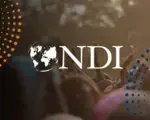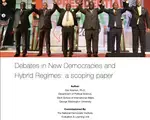Presidential
Displaying search results 431 - 440 of 5108

General
Ethiopia General Election 2004

Presidential
Philippines Presidential/Parliamentary Election 2004

General
Panama General Election 2004

Presidential Runoff
Macedonia Presidential (Second Round) Election 2004

Local
Sri Lanka Local Election 2004

Presidential
South Africa Presidential Election 2004

Presidential
Macedonia Presidential (First Round) Election 2004

Presidential
Algeria Presidential Election 2004


